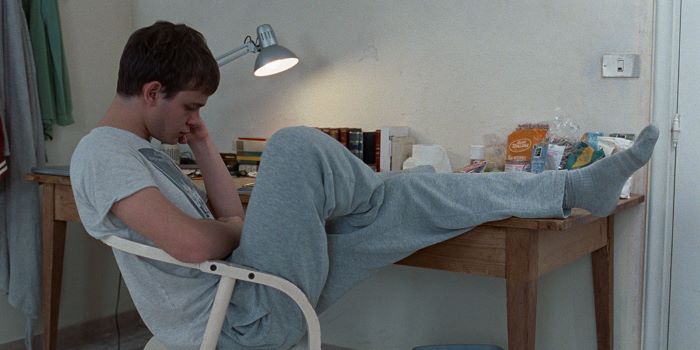![]() Director Luca Guadagnino was everywhere at this year’s Toronto International Film Festival. He brought his sauntering and sensual Queer to the festival and was also among the producers of the arch art-house April as well as the most unpredictable and messy of these entries, the brash and beguiling Diciannove.
Director Luca Guadagnino was everywhere at this year’s Toronto International Film Festival. He brought his sauntering and sensual Queer to the festival and was also among the producers of the arch art-house April as well as the most unpredictable and messy of these entries, the brash and beguiling Diciannove.
The debut film by Giovanni Tortorici, a spry filmmaker, has moxie. Tortorici takes risks. (He was Guadagnino’s assistant on another Bildungsroman, We Are Who We Are.) In any 10-minute span, the knowing coming-of-ager has many tonal shifts, each with its own editing rhythm. Like the body horror The Substance, viewers will never know what will appear on screen. Slo-mo sequences, jarring cutaways, camera zooms, contrasting locations, a split screen, and a soundtrack that blasts Chopin as well as techno: Many filmmaker’s devices are put to use. Anything goes.
Nineteen-year-old Leonardo (an up-for-anything Manfredi Marini, making his first acting appearance) has been brought up in a bourgeois bubble and leaves his hometown Palermo for London to study business, rooming with his sister and a former classmate. But the three-hour daily commute to school proves too daunting, so he hightails it at the last minute to study Italian literature in Siena. Or at least that’s the excuse: The real reason might be he can’t keep up with his DTF party-hard sister and her mates. He definitely can’t hold his liquor.
When the peripatetic storyline lands in Siena, fans of Merchant Ivory should be prepared to be overwhelmed. From Leonardo’s point of view, the camera takes in the beauty of the Tuscan city, with a swoony score to match, upstaging Florence in A Room with a View. But Leonardo still hasn’t found his niche. He brazenly denigrates a Dante professor and delves into the Italian classics of previous centuries, looking up definitions to archaic words to challenge teachers. More pointedly, he believes he knows more than he has actually experienced—if he disagrees with a book’s sentiments, he urinates on it. He is an island, population one. In his shared apartment with two housemates, he chooses to stay in his room (though he has no idea how to pick up after himself) rather than make any personal connections at all or engage with the life of a university student in the 21st century.
To buy vintage books online, he considers online hustling, but his price is too high. Whether he is gay or straight is not the question. He probably doesn’t know or care, although he pleasures himself watching a nude blonde woman on display in Pasolini’s Salo. (Like many others in 2015, he searches online for photos of a nude Justin Bieber.) Outwardly, he looks like the boy next door, though with an unfashionable haircut—he sports bangs. He’s also as self-involved as any protagonist of a young adult novel: The camera catches him feeling himself up, admiring his chest, or somberly writing a poem about suicide. Like the movie’s tone, Leonardo is all over the place.
The episodic narrative drifts along, kind of like Leonardo. In keeping with the tone, the director doesn’t push Leonardo toward a specific direction or epiphany. This highly stylized free-for-all becomes quietly realistic when he grows more self-aware, seeing himself through the eyes of an older mentor. Refreshingly, the wandering coming-of-ager offers hints and no pat answers to his future.







Leave A Comment